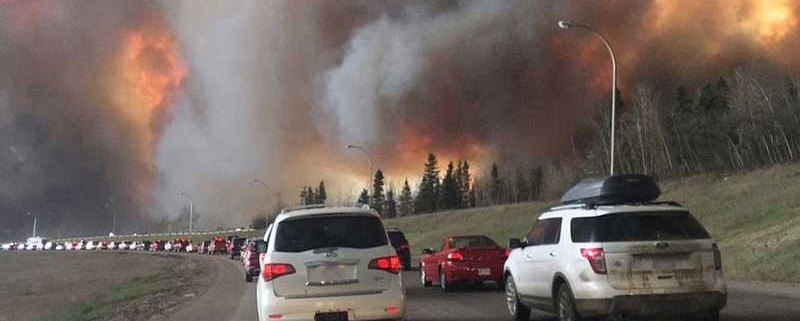It Won’t Happen to Me, Right? The Importance of Being Prepared
“It won’t happen to me, right?” is a phrase we often hear (or think) when discussing being prepared. Many people live under the assumption that they are immune to unexpected situations. While no one wants to dwell on worst-case scenarios, the truth is that life is unpredictable. Natural disasters, accidents, and emergencies can strike anyone or any community at any time.In this article today, we will explore the importance of preparedness and how it can make a significant difference in the face of adversity.
1. Natural Disasters
Mother Nature can be both breathtakingly beautiful and devastatingly cruel. Earthquakes, floods, hurricanes, tornadoes, wildfires, and more can occur with little to no warning. While you may live in an area that is historically less prone to such events, o remember that shifts in weather patterns have made many regions more susceptible to natural disasters.
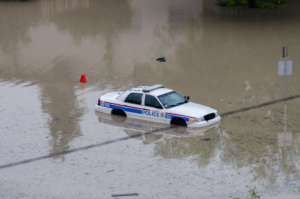
Example: The Calgary Flood of 2013
- Evacuations in 26 communities, 110,000 affected.
- More than 1,600 people registered for support on first day.
- 16 LRT stations closed.
- More than 20 bridges were closed.
- 30 parks across Calgary were flooded.
- More than 50 bus routes were cancelled.
- 34,000 locations were without electricity
2. Accidents and Injuries
A car crash, a fall, or a kitchen accident, being prepared with basic first aid abilities can mean the difference between life and death. Knowing what to do in an emergency and having supplies on hand can save precious minutes when professional help is on the way.
Pro Tip: Consider joining the world-wide team of certified First-Aiders! It has been extremely helpful in my own life, like when my oldest son passed out and fell down our stairs splitting open his eyebrow. I was able to follow the steps needed, stay calm, and get him to a doctor knowing I was doing all the right things.
3. Financial Hardships
Loss of a job, a sudden illness, or a natural disaster can have a significant impact on your financial stability. Having an emergency fund in place can provide a safety net during difficult times without severe disruption to your life.
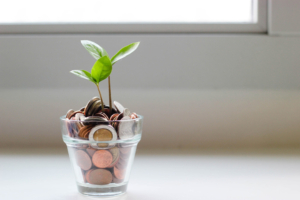
How much should you save in an emergency fund? Consider as a starting point a 1 month fund. This is equal to the amount of 1 month worth of income. From there aim for 3 months, then 6 months, then a full year. Don’t be discouraged if this feels unattainable! Start small, and keep persevering.
Pro-Tip: In a financial course I took I was encouraged to pay myself first and then my bills. It started small, and it took an entire year to attain my first 1 month worth of emergency fund. Then guess what happened? I had an emergency occur that required almost all of it! From there I already had the habit in place so I kept on putting it away to re-save that 1 month fund.
4. Personal Security
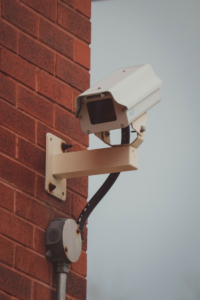
Home Security: Consider securing your home with locks, alarms, security cameras, and proper lighting. Additionally, having a designated location within your home (or out of the home) may be helpful.
Personal Safety: Being aware of your surroundings, especially in unfamiliar or potentially dangerous environments, is a fundamental aspect of personal security. Self-defense training can also empower you to protect yourself physically. Two rules in our family is that you do not go anywhere without telling someone, and do not put yourself in a place that could cause risk. An example being that back alley’s may not be a safe place to hang out after dark.
Financial Security:
- Identity Theft Protection: Safeguard your personal and financial information from theft or misuse. This includes practices like regularly checking your credit report, using strong, unique passwords, and monitoring your financial accounts.
- Emergency Fund: Building a financial safety net in the form of an emergency fund can help you navigate unexpected financial crises, such as job loss or medical expenses.
Cyber Security – Phones & Computers: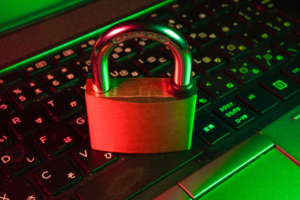
- Online Privacy: Protecting your online identity and data is essential. This involves using secure and unique passwords, enabling two-factor authentication, and being cautious about sharing personal information on the internet.
- Anti-Virus and Security Software: Installing reputable anti-virus and security software on your devices helps defend against cyber threats like malware, ransomware, and phishing attacks.
Emergency Preparedness:
- Emergency Kit: Having a well-stocked emergency kit that includes essential supplies like food, water, first aid, and communication tools can help you and your family stay safe during natural disasters or other emergencies. Check out our 72 hour kits here.
- Emergency Plan: Creating a comprehensive emergency plan that outlines how your family will respond in different scenarios, including evacuation procedures and meeting points, is essential.
 Travel and Transportation Security:
Travel and Transportation Security:
- Safe Travel Practices: Whether traveling by car, public transport, or plane, following safe travel practices, including having a reliable vehicle, staying alert while driving, and securing your belongings, can reduce the risk of accidents and theft.
- Travel Insurance: Depending on your travel plans, travel insurance can provide coverage for trip cancellations, medical emergencies, and lost or stolen belongings.
Community Security: Building strong connections with your community, getting to know your neighbors, and participating in community safety initiatives can enhance your overall personal security by fostering a supportive and watchful environment.
Example: My neighbor and I have our eyes out for each other’s property and homes. When a package is delivered, we text the other to let them know. In a more extreme case, we had a neighborhood safety lockdown one day, but she hadn’t heard about it. I saw her door open, called her with no answer, so I ran over and shared the news so she could lock her doors for added safety. “Thou shalt love thy neighbor” the good book tells us!
5. Health and Well-being
No one is immune to health issues. Regular check-ups and a healthy lifestyle can reduce your risk, but it’s impossible to predict every health challenge you may face.
6. The “Worst-Case Scenario”
While we never want to think about it, there is the possibility of more catastrophic events like global pandemics or widespread economic downturns. Recent history has shown us that these events are not beyond the realm of possibility. Preparing for such scenarios might seem daunting, but even small steps can make a significant difference in your ability to weather the storm.
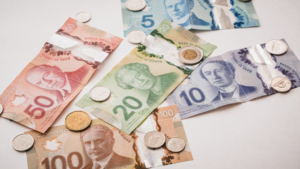
Here’s a few examples that could be a ‘worst case scenario’:
Job Loss or Income Reduction:
- In the event of a worst-case scenario, you might lose your job, experience a significant reduction in income, or face long-term unemployment. This situation can have a cascading effect on your ability to meet everyday expenses, maintain debt payments, and plan for your future. Having an emergency fund in place can help cover essential costs during this period, reducing financial stress.
Major Medical Expenses:
- A serious illness or injury can lead to substantial medical bills, even with health care or insurance. In a worst-case scenario, these expenses could be overwhelming. Adequate health insurance coverage and an emergency fund can provide a financial safety net to manage unexpected medical costs.
- Example: my upcoming “Alberta Health Care covered” foot surgery will still have a $500+ bill attached for necessary supplies.
Natural Disasters and Property Damage:
- Your home or property might be damaged or destroyed due to natural disasters such as hail, floods, earthquakes, or wildfires. Insurance coverage for property and possessions, as well as an emergency fund, can help you recover and rebuild your life.
Economic Downturns or Rising Inflation:
- Economic recessions or financial crises can result in job loss, declining investments, increasing prices and reduced income opportunities. Preparing for a worst-case scenario in the economy involves diversifying your investments, reducing debt, and ensuring your financial stability is not solely reliant on a thriving economy.
Legal or Financial Liabilities:
- Facing legal issues, lawsuits, or unexpected financial liabilities can have devastating financial consequences. Liability insurance and careful legal planning are essential for protecting your assets.
- Example: I have a family member who has been in and out of court with a messy situation in regard to a relative, and legal costs add up very quickly.

Loss of a Spouse or Family Member: The death of a spouse or family member can bring both emotional and financial challenges. Life insurance and estate planning can help mitigate the financial impact, ensuring your family’s financial well-being in such a worst-case scenario.
Disability or Long-Term Care Needs: Injuries or the need for long-term care can lead to substantial costs and reduced income. Having an emergency fund or savings may assist in this situation.
Retirement Shortfalls: In a worst-case scenario, you might outlive your retirement savings, leaving you financially strained in your later years. Careful retirement planning, including regular contributions to retirement  accounts and investments, can help ensure your financial security during retirement.
accounts and investments, can help ensure your financial security during retirement.
Pandemic or Global Health Crisis:
- Recent events like the COVID-19 pandemic have demonstrated how global health crises can disrupt economies, jobs, and daily life. Building a robust emergency fund and maintaining essential insurance coverage can help you navigate these uncertain times.
It’s important to remember that while preparing for worst-case scenarios is wise, it doesn’t mean living in constant fear or extreme frugality. Instead, it’s about making informed decisions, planning for contingencies, and establishing a strong financial foundation to safeguard your future.
Conclusion
“It won’t happen to me, right?” is a belief that many unintentionally hold. It’s a belief that can leave you unprepared when life takes an unexpected turn. Being prepared is not about living in fear. It’s about taking responsibility for your well-being and that of your loved ones. It’s about being proactive and having a plan in place for when the unexpected occurs.
Preparedness is not a one-size-fits-all solution. It’s about assessing your unique situation, recognizing potential risks, and taking steps to mitigate those risks. Whether it’s creating an emergency kit, food storage, learning basic first aid, establishing financial security, or staying informed about your health, preparedness can make a significant difference in your ability to adapt and overcome life’s challenges. Remember, being prepared doesn’t mean you’re expecting the worst; it means you’re ready for whatever comes your way, and that’s a powerful position to be in.

